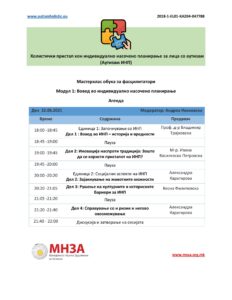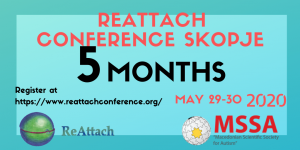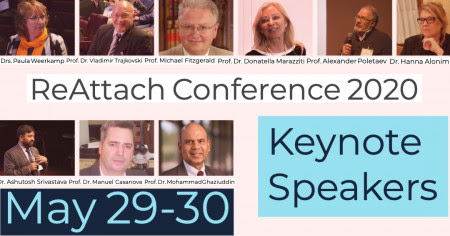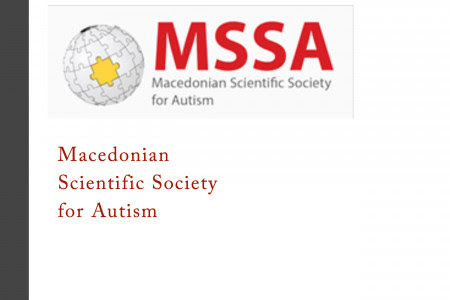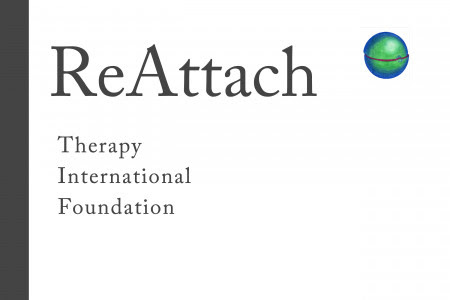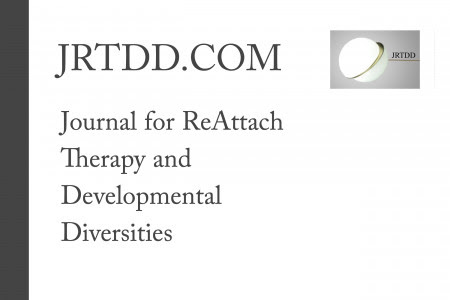Facebook
Linkedin
Email
Whatsapp
Hello everyone,
My name is Ivana Vasilevska Petrovska – and thank you so much for coming to this online conference. On behalf of all my colleagues, I want to say to every parent, teacher and any other professional involved in autism – it is great to have you here!
I’m vice president of the Macedonian Scientific Society for Autism, one of the researchers and trainers who worked on the Autism PCP project for the past 3 years.
This conference is about dissemination of the project results, and so, in this short presentation I will give an outline of:
- the motivation for this project
- the purpose of the field research we conducted
- and the main findings of the articles published
People with an autism spectrum condition are entitled to services that enable participation and access to society on equal bases with everyone else. Furthermore, they are entitled to a voice on all aspects of their life, having to make decisions and not having decisions made for them. We undertook this project in order to explore and adapt the PCP methodology – to the needs of people with autism.
The first step we took in developing the autism PCP approach was a research of good practices.
Complementary to the good practice research, next, we looked at the current conditions for people including children, with autism, across the partner countries. We did a field research, a survey with 127 informants, coming from 4 distinct groups of stakeholders:
- young people with autism,
- parents and family members of people with autism
- teachers and
- Other professionals, such as: special educators, social workers, psychologists, therapists, counsellors etc.
To facilitate further understanding of the daily challenges experienced by persons on the spectrum and their families, we looked at key topics that are well documented areas of need for persons with autism.
Each topic was discussed in the frame of four questions or sub-topics: (1) is there any intervention or support in place right now (if needed)? (2) What is working? (3) What is not working? (4) What would be required to help?
In this way, we successfully collected a wealth of significant information that was subsequently published in 2 international journals.
The first article that came out is entitled Environmental Barriers and Facilitators to Participation of People with Autism Spectrum Disorders: stakeholders’ perspective
This title was published in the Journal of Reattach therapy and Developmental diversities. An international journal – indexed in Scopus, that publishes open access and the article is open for anyone interested to read it.
In this study, we identified the most common barriers faced by individuals with autism and highlighted facilitating factors that we then utilized in the development of an autism specific PCP approach.
The barriers, affecting not only the individual with autism, but also family functioning and quality of life, stem from difficulties related to the autism condition- but also from environmental factors. We found that environmental accommodations could significantly reduce barriers resulting from the autism challenges. These accommodations or positive practices balance out the environmental barriers, that we defined as communication, attitudinal, and systemic barriers.
- According to stakeholders, over half of the individuals with autism required supports to communicate effectively.
- A significant number of individuals in our sample were not supported regarding challenges in social interaction/communication (29.87%) and isolation/loneliness (53.25%).
Support for alternative means of communication is found to be one of the strategies to facilitate participation.
A very important consideration in supporting social communication and interaction is providing opportunities for socialization.
In relation to anxiety issues, One third of our sample is facing significant lack of necessary support.
And the prevalence of anxiety was (87%) in our sample. This is greatly larger than the prevalence cited in the literature that is (between 11 and 42%).
This condition places people in a vicious circle, as untreated mental health conditions can profoundly worsen autism’s behavioral challenges, and thus, additionally compromise social participation.
We have identified environmental, attitudinal and communicational barriers related to anxiety in persons with Autism, which need to be addressed in an effort of person-centered thinking and planning.
Generally, we found that people with autism are a largely under-served population so our next article was more focused on this issue.
It is entitled PARENTAL PERSPECTIVES ON SUPPORT NEEDS AND AVAILABILITY OF AUTISM SERVICES IN SOUTH AND SOUTH-EASTERN EUROPE and was published in the Journal Advances in Autism.
This journal is not open access, but we can share an author’s copy with anyone interested.
This title explored how service delivery systems are responding to the specific needs of autistic individuals, as perceived by parents.
Thematic analysis revealed three broad themes:
- challenging pathways to service utilization,
- insufficient service options and providers’ competences, and
- a lack of continuous and meaningful support across life span.
A concerning portion of close to 50% of perceived needs of children and youth are currently not being met.
Challenges with service utilization includes problems with accessibility of existing services and support, related to time and effort required to advocate for and obtain support as well as information about available options. The significant financial burden on families associated with supporting an autistic individual has been well documented. Increased funding allocated in the form of reimbursement of commercially available services can lift the financial barrier identified in accessing autism services.
Next, our results show a limited range of available services that is not sufficient to meet the support needs of individuals on the spectrum. The most critical areas of needs include management of challenging behaviors, social and communication skills, atypical sensory reactivity, and loneliness and depression. Autistic individuals have diverse support needs and the support systems are lacking specific understanding in meeting those needs.
Findings supporting the third theme emphasize that communities need greater understanding of the heterogeneity in the autism population as well as the changing support needs over time, in order to provide appropriate and meaningful education programs and community and health services to children and individuals across the life span.
The need for a more flexible and individually tailored approach in service provision dominated in the experiences of the caregivers. Individualized and person-centered approach in service provision is considered instrumental in providing appropriate and meaningful programs to meet holistic needs.
Individualization of services inherently requires more personal and parental input in educational planning and service planning in general. Besides input from caregivers, a key consideration to the person-centered approach is meaningful participation of the individuals themselves, in decision-making and expressing aspirations and support needs. We advocate for a shared decision-making approach, based on a collaborative framework between autistic individuals, their families, and service providers in order to enhance individual’s outcomes. It is imperative to devise truly participatory mechanisms attentive to the diversity of voices within the autistic community.
We have shown that people with ASD have unique support needs that are qualitatively different from other special needs. and communities are lacking specific understanding and approaches in meeting those needs. The personalization of support services is a crucial factor to promote health, equity and well-being of persons with ASD. This approach is also considered as an effective practice in supporting children and adults with Autism Spectrum Disorders (ASD), to increase social inclusion, independence, choice and autonomy. The insights from key stakeholders’ view point represents indispensable considerations in overcoming barriers to social participation and increase decision making through Person-Centred support for people with ASD.
“When people not used to speaking out are heard by people not used to listening then real change is made.” (John O’Brien)
This is what PCP can provide for people with autism – to speak out and be heard.
Thank you very much for your attention!
I wish you all the best, greetings from Lake Prespa!
MSSA Vice President

